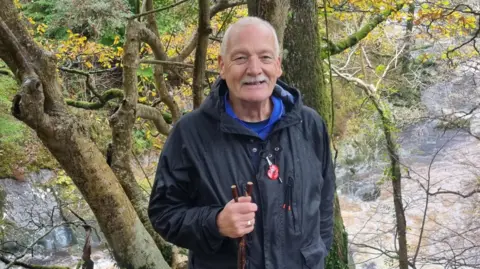The proportion of patients diagnosed with cancer at an early stage has risen to its highest level on record, NHS England figures show.
Data from the 13 most common cancers shows that 58.7% of those diagnosed between September 2023 and August 2024 were identified in stages one and two, increasing the chances of survival.
This is an increase of 2.7 percentage points since before the pandemic, and the highest level since records began more than 10 years ago.
NHS England said a combination of public awareness campaigns and new screening approaches has made a big difference.
But despite progress, England is still struggling to achieve its ambition of diagnosing 75% of cancer at stages one and two by 2028.
And the NHS is also not achieving its goal of starting treatment quickly: almost one in three people diagnosed with cancer wait more than 62 days from an urgent referral.
According to a Nuffield Trust Report Last year, these are all factors that explain why cancer survival rates in the UK lag behind those in many other comparable countries.
‘More to do’
Dame Cally Palmer, national cancer director for NHS England, acknowledged there was still “much more to do”.
But he added: “Lives are saved when cancers are caught early, and following a significant push towards early detection in recent years, it is really encouraging to see more people than ever being diagnosed at an earlier stage.”
He said initiatives such as mobile screening programs that have been used for lung and liver cancer had made a big difference.
 known brochure
known brochureOne person who has benefited is 72-year-old Paul Nelson.
He had no symptoms when he went for a lung health checkup last summer and was diagnosed with cancer.
He said he was devastated, but the fact it was caught early means he can receive treatment.
“I’ve never had any problems with my chest, but they did the check and then offered me the scan, so I thought why not. I’m very glad I went.
“If things had been left for a few more months, it could have been very different.”
Most cancers Analysis UK chief executive Michelle Mitchell praised the NHS for the progress made in early cancer detection.
But he added: “Despite this, people across the country still face unacceptable delays in critical care.”
He said a fully funded national cancer plan was necessary and that greater investment in staff and equipment, along with reform, would help improve cancer services.






